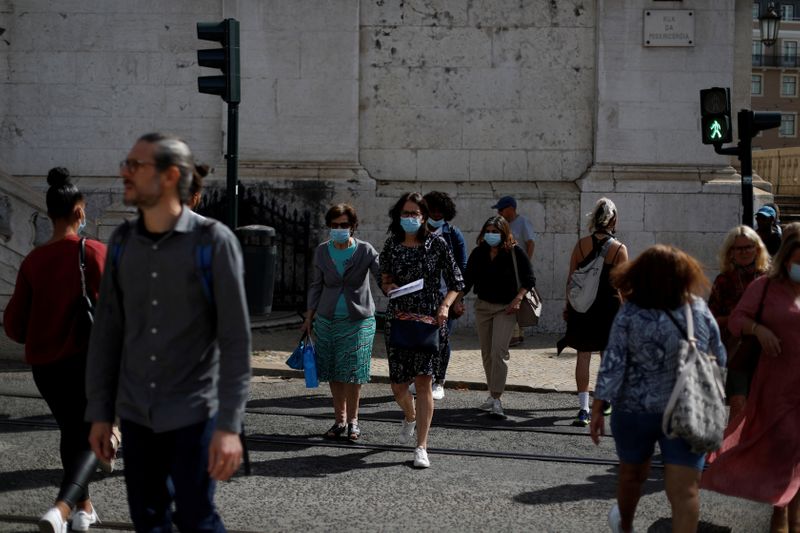LISBON (Reuters) – Tougher measures will be imposed in Portugal from Thursday onwards to contain record levels of coronavirus cases, including stricter limits on gatherings and heavier penalties for rule-breaking establishments.
Prime Minister Antonio Costa will also submit a proposal to parliament to make face masks compulsory in crowded outdoor spaces, and use of the government’s tracing app compulsory for some workforces.
“I know many people are tired of the restrictions,” Costa told a news conference on Wednesday.
“I also know many people, particularly the young, have a false perception that COVID-19’s risks are lower for them. But this perception is an illusion. COVID-19 carries a risk for you but it also carries an enormous risk of transmission to others.”
From Thursday, gatherings will be limited to five people. Weddings and baptisms can be attended by a maximum of 50, but university parties will be banned.
Fines for businesses which do not comply with the rules will be doubled from an upper limit of 5,000 to 10,000 euros.
Portugal, a nation of just over 10 million people, initially won praise for its quick response to the pandemic, recording a comparatively low 91,193 confirmed coronavirus cases and 2,117 deaths, but cases have crept back up.
On Wednesday, the country hit 2,072 daily cases, the highest number of infections in a single day since the pandemic started, according to health authority DGS, although testing rates have also increased.
There were nearly 400 localised outbreaks reported across the nation, DGS said, adding most of the coronavirus cases were concentrated in and around the capital Lisbon and in the country’s northern region.
Costa said the government was not afraid of imposing further restrictions if the spread of the outbreak did not slow.
During a separate news conference, Health Minister Marta Temido told those hoping to return to their pre-COVID lives the “disease has not vanished”.
“We will all be put to a very tough test,” she said.
The pandemic is set to leave lasting scars on the Portuguese economy, with the government predicting gross domestic product to contract 8.5% this year.
(Reporting by Catarina Demony, Victoria Waldersee and Sergio Goncalves; Writing by Catarina Demony; Editing by Victoria Waldersee, Raissa Kasolowsky and Alison Williams)

























